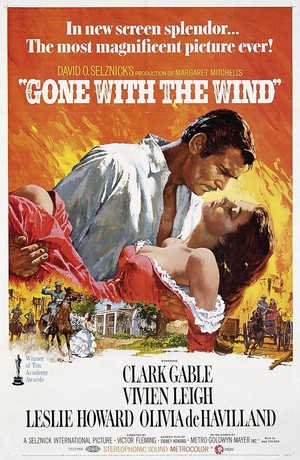
Gone with the Wind (1939)

Raiting: ![]() 8,2 /10
8,2 /10
Genre: History
Director: Victor Fleming
Stars: Clark Gable, Vivien Leigh and Olivia de Havilland
Country: United States
Release date: 15 December 1939
Length: 238 minutes


Raiting: ![]() 8,2 /10
8,2 /10
Genre: History
Director: Victor Fleming
Stars: Clark Gable, Vivien Leigh and Olivia de Havilland
Country: United States
Release date: 15 December 1939
Length: 238 minutes